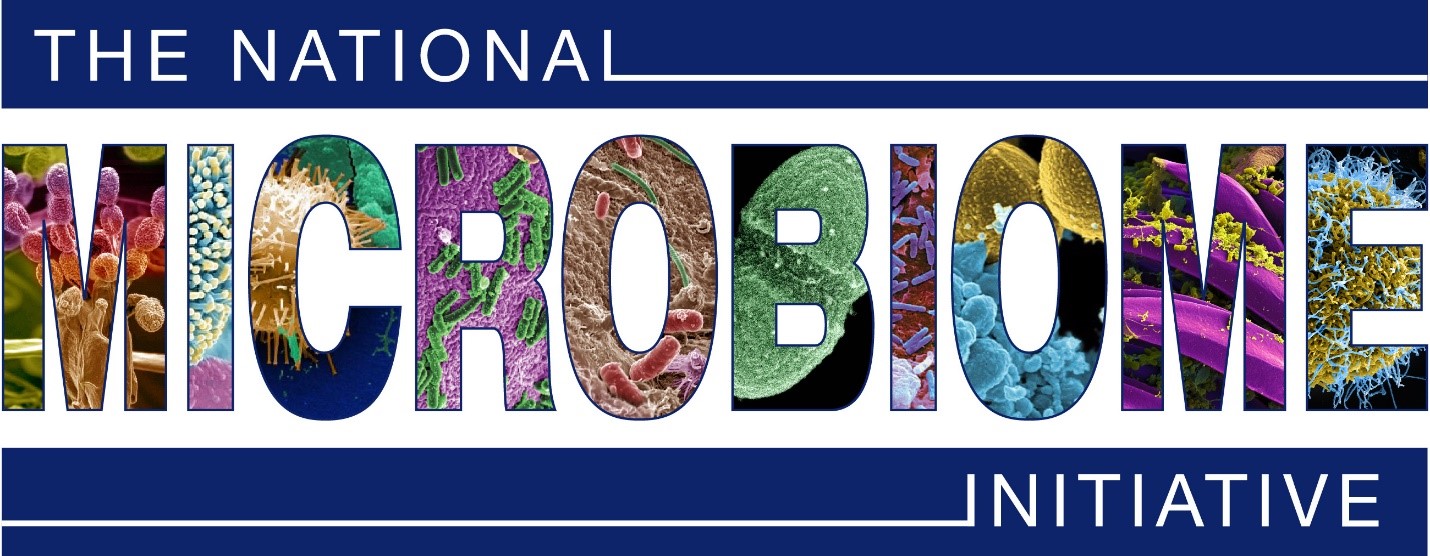

Today, the White House Office of Science and Technology Policy (OSTP), in collaboration with Federal agencies and private-sector stakeholders, is announcing the National Microbiome Initiative (NMI). The NMI aims to advance understanding of microbiomes in order to aid in the development of useful applications in areas such as health care, food production, and environmental restoration.
Microbiomes are the communities of microorganisms that live on or in people, plants, soil, oceans, lakes, rocks, and the atmosphere. Recent discoveries have generated a new view of the biological world, one that recognizes that plants and animals are actually meta-organisms containing one or many microbial species. Inanimate surfaces, from rocks to keyboards, are likewise swarming with microbial life.
These microbial communities help define the health and integrity of their living or inanimate hosts. Microbiomes influence the behavior of diverse ecosystems, with effects on human health, climate change, food security, and other factors. Imbalanced microbiomes have been associated with human chronic diseases such as obesity, diabetes, and asthma; local ecological disruptions such as the “dead zone” in the Gulf of Mexico; reductions in agricultural productivity; and disruptions in weather and atmospheric conditions related to climate change.
Despite the exciting progress that has already been made in microbiome science, the knowledge and tools necessary to manipulate microbiomes in a directed manner are lacking. The NMI will focus on comparative study of microbiomes across different ecosystems to seek organizing principles that shape all microbiomes. Understanding these principles are necessary to develop approaches to reliably alter microbiomes to benefit individuals, communities, and societies.
Specifically, the NMI will have three goals, which were developed through a year-long fact-finding process that involved Federal agencies, non-government scientists, and a broad community of citizens. These goals are:
- Supporting interdisciplinary research to answer fundamental questions about microbiomes in diverse ecosystems.
- Developing platform technologies that will generate insights and help share knowledge of microbiomes in diverse ecosystems and enhance access to microbiome data.
- Expanding the microbiome workforce through citizen science and educational opportunities.
New Public and Private Investments in Microbiome Research
The NMI builds on a strong base of public and private support. Between Fiscal Year (FY) 2012 and 2014, for example, more than a dozen Federal departments and agencies invested a total of $922 million into microbiome science. Moreover, many universities have created centers and launched programs designed to accelerate the study of microbiomes, and private-sector involvement in microbiome research and applications has grown rapidly. These developments reflect strong interest throughout the research community and the broader public in understanding microbiomes across ecosystems.
The NMI will continue this momentum by coordinating and connecting ongoing efforts to maximize impact and by catalyzing new activities under the goals outlined above. To kick off the NMI, Federal agencies will together invest more than $121 million (in funds appropriated in FY 2016 and proposed in the President’s FY 2017 Budget) into interdisciplinary, multi-ecosystem research and tools development.
In addition, stakeholders and institutions in all sectors are today announcing new commitments of more than $400 million in financial and in-kind contributions that respond to OSTP’s national call to action on microbiome science and support the NMI’s overarching goals. These include:
- The Bill and Melinda Gates Foundation will invest $100 million over 4 years to investigate and develop tools to study human and agricultural microbiomes.
- JDRF will invest $10 million over 5 years to address microbiome research related to type 1 diabetes.
- The University of California, San Diego is investing $12 million in the Center for Microbiome Innovation to enable technology developers to connect with end users.
- One Codex is launching a public portal for microbiome data, allowing for researchers, clinicians, and other public health professionals to have more access to microbiome data.
- The BioCollective, LLC, along with the Health Ministries Network, are investing $250,000 toward building a microbiome data and sample bank and engaging underrepresented groups in microbiome research.
- The University of Michigan, with support from the Howard Hughes Medical Institute and Procter and Gamble, will invest $3.5 million in the Michigan Microbiome Project to provide new research experiences for undergraduate students.
Click here to learn more about all of the commitments and announcements being made today.
To kick off the NMI, OSTP is hosting an event at the White House this afternoon to hear from community and research leaders about microbiome science, and opportunities for collaboration and progress. Tune in to the livestream of the event from 1:00 pm EDT at obamawhitehouse.archives.gov/live.
The launch of the NMI marks a milestone for microbiome science. We expect that by accelerating progress in this important field, the NMI will deliver considerable benefits to our planet and those who inhabit it. Because if there’s one thing we know for sure, it’s that while microbes may be small, their impacts are mighty!
Jo Handelsman is Associate Director for Science at the White House Office of Science and Technology Policy.

